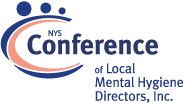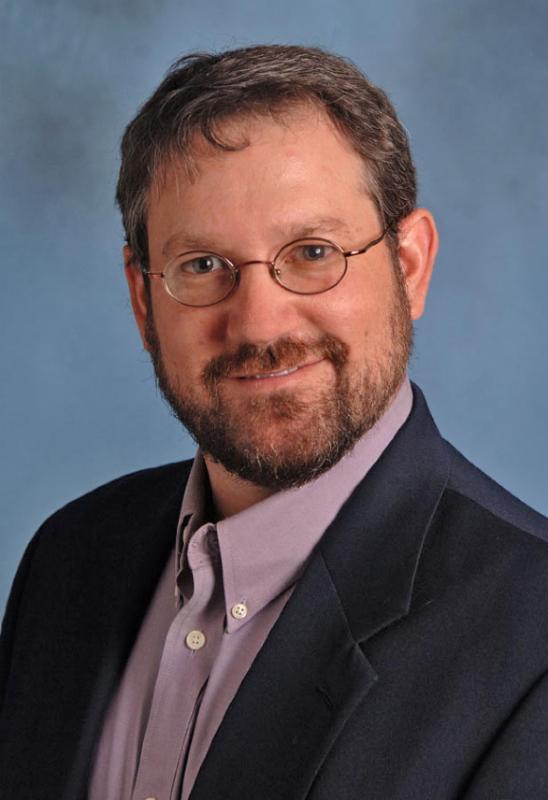
Advancing Public Policies for People with Mental Illness, Chemical Dependency or Developmental Disabilities
|
|
 |
|
|
 |
|
NGA Releases New Medicaid Toolkit
NGA gathered health policy experts to discuss the guide which provides states with strategies on how to design statewide Medicaid transformation proposals that the federal government is likely to approve.
Governors are developing powerful innovations around the country to transform state health care systems. At the center of these transformational efforts are the very complex negotiations among leadership at the U.S. Department of Health and Human Services, the White House and states.
|
|
 |
|
|
 |
|
Value Based Payment: How to Implement and Track the New Metrics and Quality Measures
How do health information technology, population health and pay-for-value all fit together for a behavioral health organization? It's important to understand the interrelatedness of these elements and how to get your organization started for participation that positively affects your revenue.
Whether you are striving for Certified Community Behavioral Health Clinic participation, Center of Excellence standing, or simply seeking a high-quality, high-value status, the concepts of satisfaction, engagement and health are key elements in this new era of healthcare reform. Reimbursement comes with more strings than before and is no longer a given. While a painful shift, it becomes critical to construct your organizations processes well from the beginning.
Very broadly, incentive programs like the Physician Quality Reporting System, Meaningful Use, and the Value Based Modifier were historically developed for physicians to help improve the quality of care outcomes in our healthcare industry. To determine whether organizations receive an incentive payment versus a penalty, models require reporting on a set of metrics that largely revolve around a physical health model of care. Many thought these programs were optional, and to a certain degree they still are. Yet organizations are starting to see some of these payment penalties coming through and are beginning to wonder why. Non-physician eligible professionals are getting tagged with the penalties. This will get your attention. Read more
here.
|
|
 |
|
SAMHSA Announces New Chief Medical Officer

S
AMHSA's Principal Deputy Administrator Kana Enomoto has announced the hiring of SAMHSA's new Chief Medical Officer, Anita Everett, M.D. Dr. Everett will bring a wealth of behavioral health expertise and experience from the psychiatric field to SAMHSA when she assumes this new role.
Dr. Everett will lead the newly created Office of the Chief Medical Officer (OCMO). This office will have five dedicated staff, including an additional medical doctor, and will greatly expand SAMHSA's ability to provide effective, state-of-the-art, evidence-based approaches to promote the nation's behavioral health services. Working with SAMHSA leadership and staff, the OCMO will provide valuable input into strategic initiatives, policy directions, and legislative issues to ensure that medically researched and clinically approved practices are incorporated in the development and implementation of SAMHSA programs and activities.
Read more
here
.
|
|
 |
|
|
UPCOMING TRAININGS
MCTAC
MCTAC is offering a second round of
in-person
small business initiative regional forums specifically geared toward smaller agencies that have little to no experience billing Medicaid or managed care. The trainings will be offered on the following dates:
- 9/19/16, Hudson Valley
- 9/21/16, Albany
- 9/28/16, Syracuse
- 9/29/16, Rochester
- 9/30/16, Buffalo
August 24, 12 - 1 pm
September 21, 12 - 1 pm
October 26, 12 - 1 pm
OTHER TRAININGS
August 22, 2 - 3 pm, SAMHSA/NASMHPD
August 30, 2 - 3:30 pm, CSG Justice Center
|
|
 |
|

|
AUGUST 2016
August 25: 8 - 9 am
GTM Only
SEPTEMBER 2016
Officers & Chairs - Call In
September 7: 8 - 9 am
RPC Advisory Call
September 15: 8 - 9 am
Fall Full Membership Meeting
September 26 - 27
Woodcliff Hotel & Spa, Fairport
Contact CLMHD for all Call In and Go To Meeting information, 518.462.9422
|
|
|
|
 |
|
|
 |
|
National Council Launches BHECON: A Behavioral Health and Economics Network
Despite growing demand, far too many Americans live without access to the mental health services they need. Between workforce shortages, dismally low reimbursement rates and financing methodologies that often fail to cover critical treatment services, health care providers struggle to build capacity to serve all individuals living with mental illnesses. This week, the National Council launched a new initiative -
the Behavioral Health and Economics Network (BHECON) - to unite diverse stakeholders to identify, examine and advance policy reforms to strengthen states' mental health delivery systems.
BHECON will convene a series of forums in Illinois, Connecticut, Massachusetts, Missouri and Pennsylvania, bringing together diverse stakeholders to explore state-specific policy reforms. With aims to support sustainable policy change by uniting stakeholders around a common agenda, the forums will focus on translating research and health economic data into compelling and useful information for policymakers and advocates striving to improve mental health care. Through coordination between state governments, the federal government, criminal justice systems and other social service systems such as children and family services, BHECON will strengthen the continuum of care and the capacity of the mental health safety net. Read more here.
|
|
 |
|
|
 |
|
BHOs Say Providers are Lukewarm on MAT
Medication-assisted treatment (MAT) is regarded as an evidence-based approach to treating substance use disorder (SUD), and it is on behavioral health organizations to drive implementation as they address the opioid crisis, according to a recent
report from the Association for Behavioral Health and Wellness (ABHW).
In compiling the study, researchers interviewed representatives from 11 ABHW member companies, which are behavioral health organizations (BHO) that manage services and provider networks. The member organizations have found providers to be lukewarm in their acceptance of MAT.
"There are still people who don't really believe that medications are an appropriate treatment for someone who has an addiction. That needs to get changed," says Sharon Reif, PhD, one of the report's authors and senior scientist at the Institute for Behavioral Health at the Heller School for Social Policy and Management, Brandeis University. "We wouldn't say that about any other medication for any other medical condition. We say that for addiction. MAT is an important tool in the toolbox. It shouldn't be the only tool, but it should certainly be there." Read more
here.
|
|
 |
|
|
Your Peer Specialist Will See You Now
Dealing with any mental health or substance abuse issue is tough. It can often feel like no one really understands what you're going through. But there's a growing movement to change that by employing people who can better empathize with patients.
Peer specialists are people who have personally struggled with mental health or substance abuse problems but are now in recovery and helping others. They work for community behavioral health centers, psychiatric inpatient facilities and other health-care providers.
"These programs are proliferating everywhere you look. There's a lot of evidence to show that peers can support and acclimate someone to a new life of recovery," said Kim Nelson, the regional administrator of the Substance Abuse and Mental Health Services Administration for Iowa, Kansas, Missouri and Nebraska. She worked as a peer specialist for a decade before landing her current job.
At least 38 states have developed some sort of certification for a peer specialist program. Training and programming vary from state-to-state, but Medicaid requires employers to supervise peer specialists' first 2,000 hours of work. They also must complete at least 30 hours of continuing education training in mental health every two years. Read more
here
.
|
|
 |
|
|
NIH Announces New Director of Mental Health

The National Institutes of Health (NIH) recently announced the newest addition to its team. Joshua A. Gordon, MD, PhD, will join the NIH in September as the director of the National Institute of Mental Health (NIMH). The announcement of his selection comes nearly 1 year after the former director stepped down from the post in September 2015.
Gordon's primary responsibilities entail overseeing the agency's research on mental health, which includes a $1.5 million budget and supports more than 2000 research grants and contracts at universities and other institutions across the United States and the globe.
Read more
here
.
|
|
 |
|
Insurance Rules Can Hamper Recovery From Opioid Addiction
As of 2013,
Medicaid in 48 states required a prior authorization for buprenorphine, the active ingredient in Suboxone. Chris Carroll, director of health care financing at SAMHSA, says that number likely has not changed much since 2013. He says treatment limitations like prior authorizations are part of "the dark shadows of the insurance industry."
Prior authorizations are one way insurers limit what they pay for, Muszynski says, and they use prior authorizations more often with mental health and addiction treatments, compared to other medical treatments. That's despite the 2008 passage of a federal law called the Mental Health Parity and Addiction Equity Act, which was supposed to end unequal insurance coverage for mental illness as compared to physical illness.
Prior authorization requirements can also pressure doctors to change how they prescribe a drug such as Suboxone. Sometimes an insurer will push for a lower dosage than the doctor wants, or it will require a patient to start tapering the use of a medication even when the doctor thinks the patient needs more time. Read more here.
|
|
 |
|
|
|